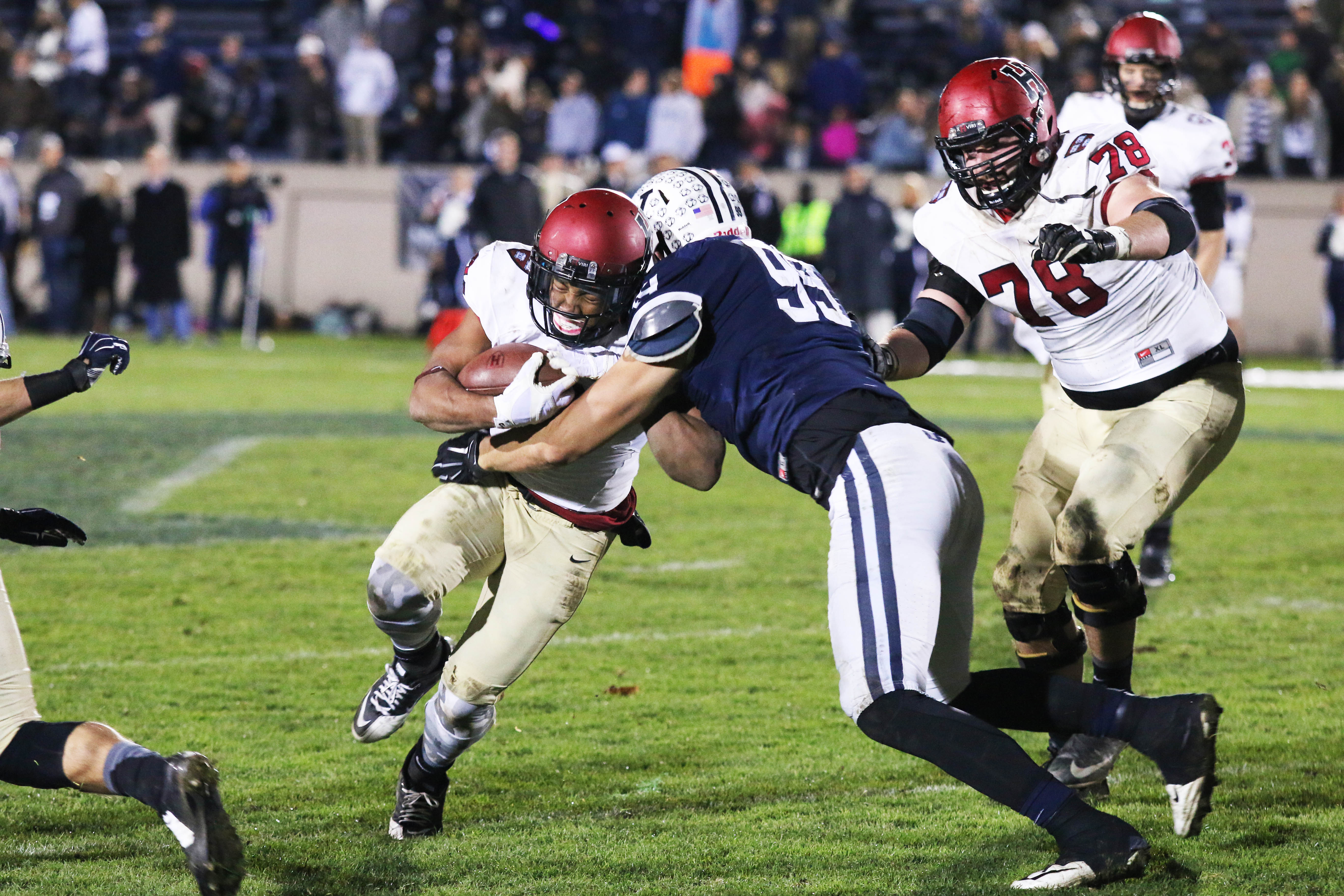
After this past football season, No. 20 Harvard and No. 23 Dartmouth both finished ranked in the Football Championship Subdivision after winning a shared Ivy League championship with the University of Pennsylvania. Months later, three 2016 recruiting classes from the Ivy League were ranked in the top five out of 125 FCS programs by the 247Sports Composite Team Rankings.
But beyond these rankings, none of those schools currently get a chance to test their national competitiveness on the field.
The Ivy League is one of just three FCS conferences that does not participate in the annual NCAA Division I Football Championship, and it is the only league that does not take part in any postseason play. The Ancient Eight season lasts 10 weeks and ends in late November, more than a month before the FCS tournament finishes. A change in the system, which dates back to 1945 and would need to be agreed on by all eight Ivy League presidents, remains unlikely in the coming years.
“The Ivy League presidents are not interested in allowing participation [in] the NCAA Division I Football Championship for several reasons, including its potential impact on academics with a schedule that extends into December and early January,” Ivy League Executive Director Robin Harris said. “[Ivy presidents] value Ivy League football as it currently exists and also believe the focus should be on the regular season in football, and that the traditions and the history of Ivy League football should be paramount.”
Harris’ point about academics is the main argument traditionally made for the lack of postseason play in Ivy League football. Because December and January are finals period for most Ivy League institutions, joining the FCS playoff institutions could overlap with student-athletes’ studies.
Yale Director of Athletics Tom Beckett noted, however, that every other Ivy League sport at Yale sends its champion to a national postseason. The Yale men’s hockey team, for example, extended the end of its 2012–13 season from early March to April 13 when it won the first NCAA Tournament title in program history.
“All Ivy League coaches, athletic directors and team members, alums and fans would love to find a way to reward the regular-season league champion with a postseason championship experience,” Beckett wrote in an email to the News. “As a league, we must find a way to reward our champion in football as we do with every other Ivy League championship team.”
University President Peter Salovey, whose presidency is in its third year, said he has not been part of any discussions about a football postseason in the Ivy League.
As is the case at Yale, football is the only sport at Harvard that does not see postseason play. Harvard football head coach Tim Murphy conceded that it is “not easy” to argue for a policy that makes football different from all other sports, but he added that unique opportunities in Ivy League football, such as playing in the historic Harvard–Yale game, exceed the experience of the FCS playoff. Previously, Murphy coached at the University of Maine, which participates in the FCS playoff.
Yale football head coach Tony Reno said although he often discusses the possibility of a postseason playoff, those decisions are out of the coaches’ control.
Similarly, Brown Director of Sports Publicity Christopher Humm said the subject has been brought up several times in the past, but that the decision of participating in the FCS playoffs is solely at the discretion of the eight Ivy League presidents.
Yale tight end Jackson Stallings ’17, who is a co-president of Yale’s Student-Athlete Advisory Committee, said the topic of introducing postseason play in football was discussed in a meeting with other Ivy League SAAC presidents on Feb. 14. The presidents decided to research the amount of support from coaches and players. The research is ongoing, Stallings said, and may influence potential SAAC action in the future.
“The Ivy League is not at a disadvantage among FCS conferences for not participating,” Stallings said. “But because the Ivy League routinely beats our out-of-conference opponents, it does leave room to speculate how our conference would compete given the opportunity to play for a National Championship.”
NCAA Associate Director of Public and Media Relations Christopher Radford declined to comment when asked if the nonparticipation of the Ivy League schools in the FCS playoff affected the subdivision.
Other alumni called attention to the idea of tradition, and said participating in postseason play would take away value from an Ivy League season whose format has remained the same for decades.
“As a traditionalist I enjoy the Yale season ending with Princeton and Harvard,” former football player Greg Hall ’77 said. “The HYP games draw good crowds and often television audiences larger than any FCS playoff game. ESPN’s College Game Day came to Yale–Harvard two years ago, and The Game was broadcast nationally by NBC last year.”
But Stallings said the Ivy League has a “strong international brand” that could add value to the FCS playoff, both in talent and interest.
North Dakota State won the 2015 NCAA Division I Football Championship, marking the fifth consecutive year the Bison claimed the FCS title.







